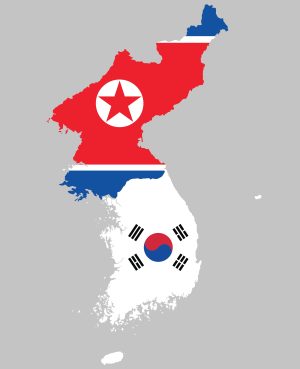South Korea’s spy agency filed charges on Wednesday against two of its former directors over their handling of separate border incidents with North Korea in recent years, which prompted criticism that Seoul’s previous liberal government improperly appeased the North to improve ties.
The National Intelligence Service accused former director Park Jie-won, who served from 2020 to May this year, of destroying intelligence reports related to North Korea’s fatal shooting of an unarmed South Korean citizen in waters near the countries’ western sea border in 2020.
In a statement, the agency also alleged that Park’s predecessor, Suh Hoon, forcibly closed an investigation into the circumstances surrounding the 2019 repatriation of two North Korean fisherman captured in South Korean waters.
The two incidents have tainted the legacy of former President Moon Jae-in, who staked his single five-year term on inter-Korean engagement but faced accusations of appeasing a nuclear-armed rival with a brutal human rights record. The cases are being reviewed under the government of current conservative President Yoon Suk Yeol, who won a March election on a platform of taking a tougher stance toward North Korean provocations.
The agency said it is bringing multiple charges against Park and Suh, including abuse of power, damaging public records, and creating falsified records. It didn’t immediately elaborate on the last charge.
Responding to an inquiry from The Associated Press, the Supreme Prosecutors’ Office said it plans to assign the cases to the Seoul Central District Prosecutors’ Office for review before possibly proceeding with an investigation.
Park denied that he destroyed internal reports and accused the agency of meddling in politics.
“Don’t write a novel,” he wrote on Facebook.
The 2020 killing of the South Korean man, who was an employee of the country’s fisheries ministry, has been a source of domestic divide in South Korea. Conservatives accused Moon’s government of failing to strongly respond to North Korea in hopes of better ties and of attempting to divert the blame from the North by suggesting that the man had tried to defect.
Yoon’s government overturned the previous administration’s assessment, saying last month that there is no evidence the South Korean official had intended to defect.
Critics say Moon’s government never provided a clear explanation of why it forcibly repatriated two North Korean escapees in November 2019 to face possible execution, just days after they were seized in South Korean waters and expressed a desire to defect. Kim Yeon-chul, Moon’s point man on North Korea, described the men as “atrocious criminals” who confessed to murder, and questioned the sincerity of their wish to defect.
Dozens of international organizations, including Human Rights Watch, issued a joint statement accusing Moon’s government of failing to provide due process and “protect anyone who would be at substantial risk of torture or other serious human rights violations after repatriation.”

































